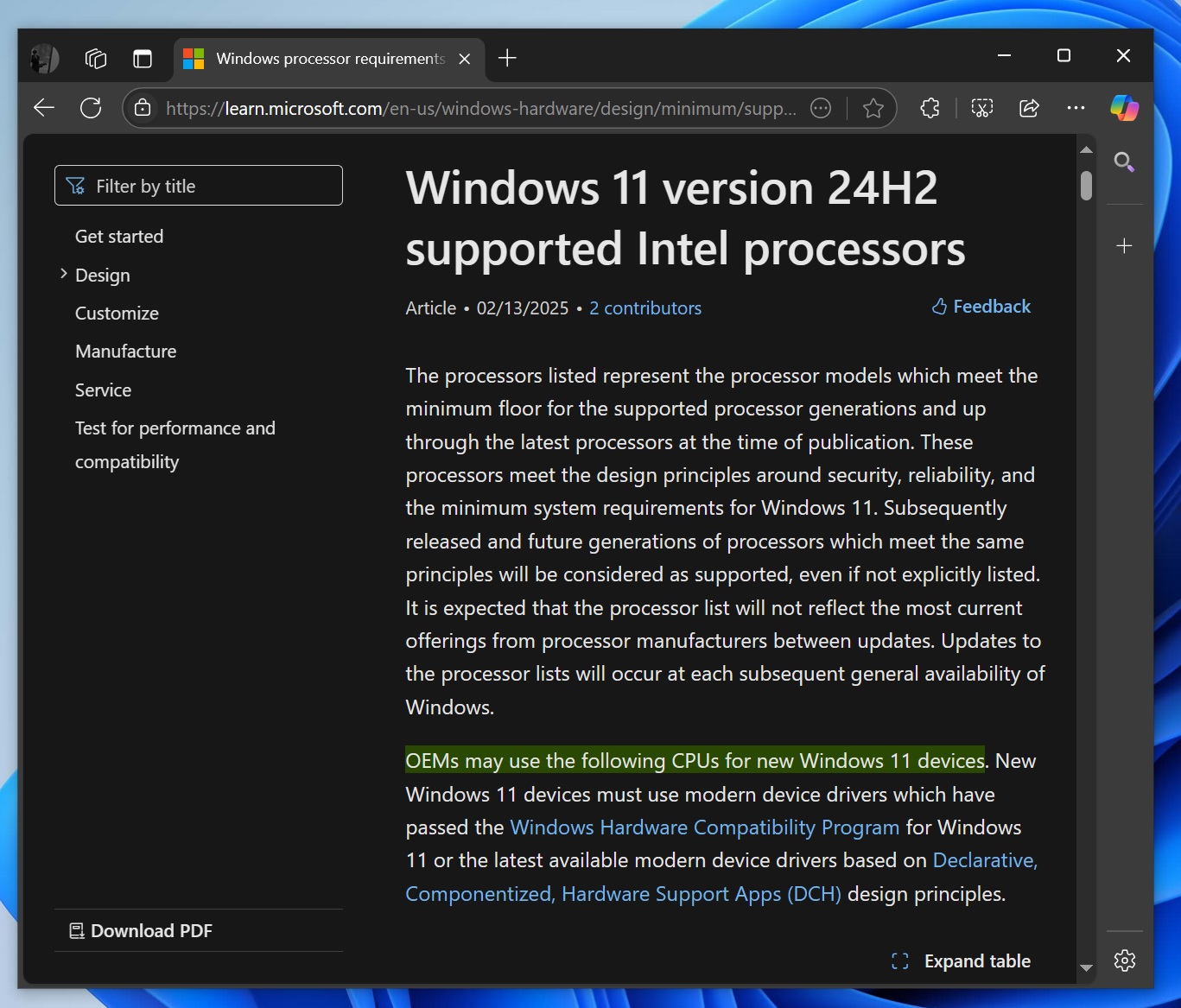A quick search on Bing and Google has news articles claiming that Microsoft has dropped Windows 11 24H2 support for Intel 8th, 9th, and 10th Gen chips. This is not true. In a statement to Windows Latest, Microsoft confirmed that Windows 11 hardware requirements hadn’t changed since 2021.
Windows 11 24H2 requirements are also the same unless you’re looking for AI features, which require NPU. But what is the buzz all about?
Windows 11’s hardware requirements are officially listed on Microsoft’s OEM website, so you can easily see what it takes to run Windows 11, including 24H2. On 13th February 2025, Microsoft updated its OEM support document titled “Windows 11 version 24H2 supported Intel processors” to include new information about 24H2.
The first notable change is that Microsoft has renamed the document to mention the Windows 11 24H2 release. Second, the list of supported processors does not include “8th gen, 9th gen, and 10th gen Intel” chips. This led some people to believe that older Intel chips are no longer officially supported for “Windows 11 24H2.”
However, the catch is that these support documents aren’t really meant for consumers.
They’re a requirement sheet for PC makers like HP and Lenovo to consider building new PCs with newer processors, so they do not list 8th-gen, 9th-gen, and 10th-gen processors.

As shown in the above screenshot, Microsoft has clearly mentioned “OEMs may use the following CPUs for new Windows 11 devices. New Windows 11 devices must use modern device drivers which have passed the Windows Hardware Compatibility Program for Windows 11…”
Microsoft’s document lists the hardware requirements for OEMs, and apparently, they don’t include older chips because Microsoft or Intel don’t want PC makers to build PCs with 8th-gen processors in 2025.
It makes sense, right?
It’s also important to note that this isn’t a new “practice”. OEM documents are always updated to recommend newer CPUs, like 12th-gen processors, for building new PCs. It also happened with Windows 7, 8.1, 10 and now 11.
You’ll still find the 8th gen, 9th gen and 10th processors listed as supported when you open the Windows 11 22H2/23H2 supported/recommended CPUs page for OEMs. These CPUs are absent from Windows 11 24H2 document because it doesn’t make sense to recommend older chips to OEMs in 2025.
Microsoft refutes claims
Windows Latest reached out to Microsoft to understand if there has been any change in the plans, and the company told me “requirements haven’t changed”.
In fact, the company is also not blocking anyone from installing Windows 11 24H2 on any device, even if it’s not officially supported or recommended.
For consumers, you can keep using Windows 11 officially as long as you have TPM 2.0. Even if your device does not have a TPM, you can bypass the requirements by modifying the registry.
TLDR: If you come across any article claiming that Windows 11 24H2 doesn’t support 8th, 9th, 10th, or 11th gen processors, don’t fall for it.
The post No, Microsoft is NOT dropping Windows 11 support for Intel 8th, 9th, and 10th Gen chips appeared first on Windows Latest
